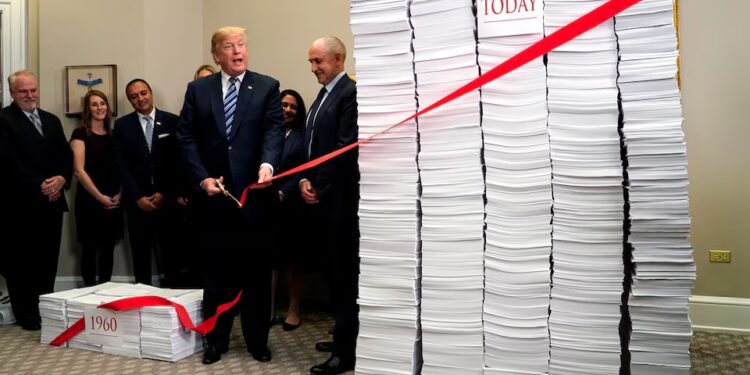A second Trump White House would seek to sharply reduce the power of U.S. financial regulators, according to a review of public documents and interviews with people allied with the former president.
In the wake of the worst economic crisis since the Great Depression, Congress dramatically expanded the U.S. government’s oversight of the financial industry to prevent a repeat of the 2008 global banking meltdown.
Donald Trump would likely renew his efforts to scale back those reforms, if elected, as well as pare protections for small-scale investors and borrowers, and allow companies to raise money with less scrutiny, according to the interviews and proposals from groups positioned to influence a new conservative administration. Reuters spoke with, among others, about a dozen people who have provided advice or been consulted by Trump or his allies.
The Republican Party’s presumptive nominee has not announced a formal policy staff or released detailed positions on how he would regulate Wall Street, aside from short videos and snippets in campaign appearances.
But, the sources told Reuters, a constellation of experts and Trump allies are pitching regulatory rewrites, identifying potential staff and floating ideas on TV, in op-eds and directly to Trump at his Mar-a-Lago Club in Palm Beach, Florida
How can you tell if a coffee plant is suffering from the effects of climate change?
Some of the ideas in Trump’s current policy orbit have long circulated in conservative economic conversation. They include curtailing the Dodd-Frank Act, a set of post-2008 financial crisis rules intended to reduce systemic risk. Another idea is to make it easier for private companies to raise capital – in turn opening access to less transparent and more difficult-to-trade private funds and securities.
Source: Reuters


Recent Comments